Sales representatives who master discovery call execution close up to 30% more deals than those who struggle with these crucial conversations. Despite this significant performance gap, discovery calls remain one of the most poorly executed aspects of the modern sales process.
Discovery calls determine the trajectory of entire sales cycles. These conversations serve as the foundation for understanding prospect needs, qualifying opportunities, and building the relationships that drive revenue growth. Yet analysis of thousands of sales interactions reveals that representatives consistently make the same avoidable mistakes across different industries and organizations.
The pattern emerges clearly: ten critical errors repeatedly derail promising opportunities. These mistakes range from inadequate preparation to poor questioning techniques, each capable of sabotaging potential deals that appeared viable at first contact.
However, these failures need not define your sales results. Modern AI coaching platforms offer systematic solutions to each common pitfall, providing real-time guidance, post-call analysis, and structured improvement strategies that address the root causes of discovery call dysfunction.
Sales leaders seeking improved team performance and representatives aiming to sharpen their skills face the same fundamental challenge: recognizing these discovery call mistakes before they damage relationships and derail opportunities. Understanding these pitfalls creates the foundation for more effective prospect conversations and stronger sales outcomes.
Each mistake carries specific consequences that extend beyond individual calls. The following analysis examines these ten errors in detail, explaining their impact on sales results while demonstrating how AI-powered coaching helps teams overcome persistent discovery challenges through measurable, systematic approaches.
1. Insufficient Preparation and Lack of Agenda
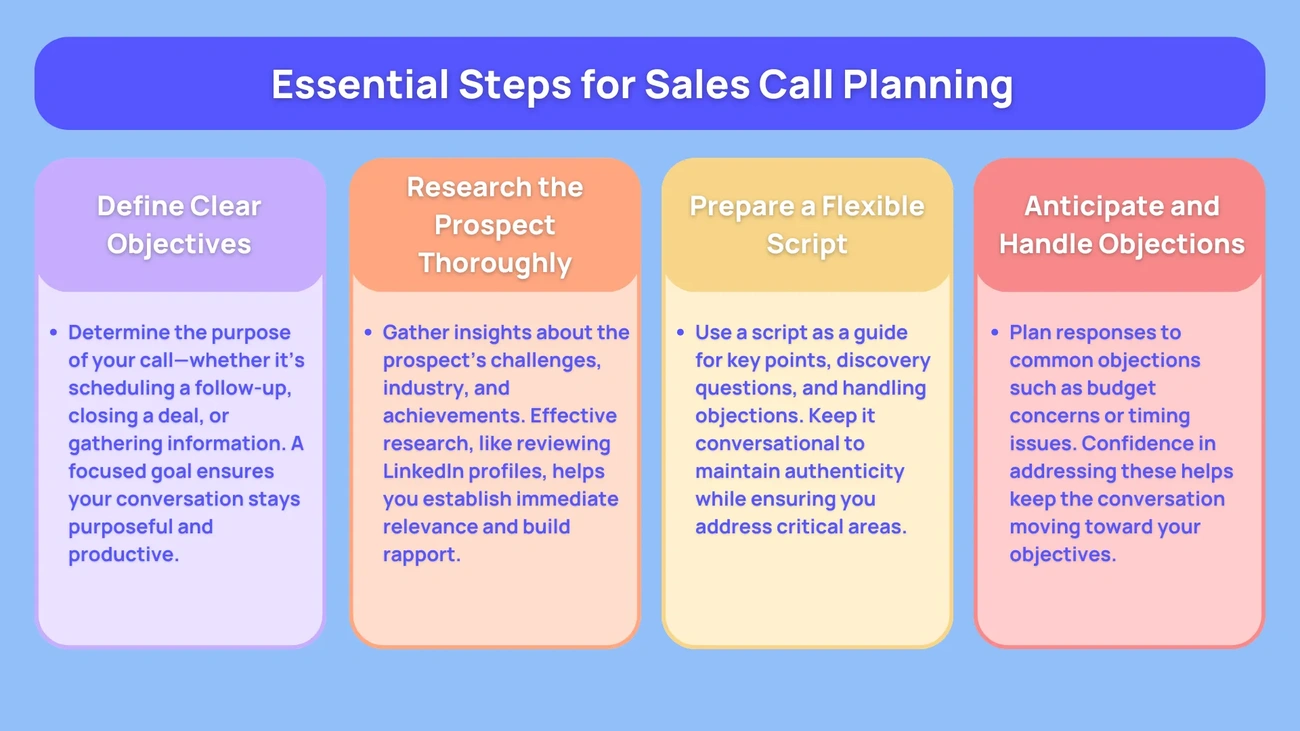
Analysis of 63 recent meetings reveals that insufficient preparation and lack of structured agendas rank as the number one mistake that derails effective discovery conversations. Representatives who enter calls unprepared create immediate barriers to success that extend throughout the entire sales process.
Description of Insufficient Preparation and Lack of Agenda
This mistake manifests when sales representatives join discovery calls without conducting adequate research on the prospect or their organization. The problem surfaces through several telltale signs: fumbling through basic company information that should have been reviewed beforehand, asking questions already addressed in previous communications, or demonstrating limited understanding of the prospect's industry challenges.
Structured agenda deficiencies compound these preparation failures. Calls without clear roadmaps typically:
- Begin without confirming the meeting's purpose or duration
- Meander through topics without logical progression
- End without establishing clear next steps or action items
- Miss crucial qualification criteria essential for proper discovery
One particularly revealing example involved a representative who spent 15 minutes discussing product features before discovering the prospect lacked decision-making authority: information that would have emerged from a basic CRM review prior to the call.
Impact of Insufficient Preparation and Lack of Agenda
Customer confidence erodes rapidly when prospects recognize that representatives haven't completed basic homework. This fundamental failure significantly extends sales cycles as additional meetings become necessary to gather information that should have been covered during initial conversations.
Qualification criteria often remain unexplored, creating pipeline bloat with poorly qualified opportunities. The cascading effects include forecasting problems, wasted follow-up efforts, and ultimately lost deals that appeared promising at first contact.
Most critically, arriving unprepared signals to prospects that your organization's time management and attention to detail might prove similarly lacking should they become customers. This perception becomes difficult to overcome later in the sales process.
How AI Coaching Helps Avoid Insufficient Preparation and Lack of Agenda
AI coaching platforms address this challenge through systematic preparation support and real-time guidance. These systems analyze CRM data and previous interactions to create tailored preparation checklists for each prospect, automatically flagging important details that might otherwise be overlooked.
Structured agenda templates based on prospect industry, company size, and specific needs ensure consistency across all discovery conversations while maintaining flexibility for unique situations. These guided playbooks create standardized approaches without sacrificing adaptability.
Real-time coaching during calls monitors coverage of key topics, providing subtle prompts when representatives begin veering off-course. This guidance redirects conversations back to priority discovery areas without disrupting natural conversation flow.
Post-call analysis identifies gaps in the discovery process, establishing continuous improvement loops that help representatives become progressively more prepared and structured in their approach to prospect conversations.
2. Over-Talking and Poor Questioning Techniques
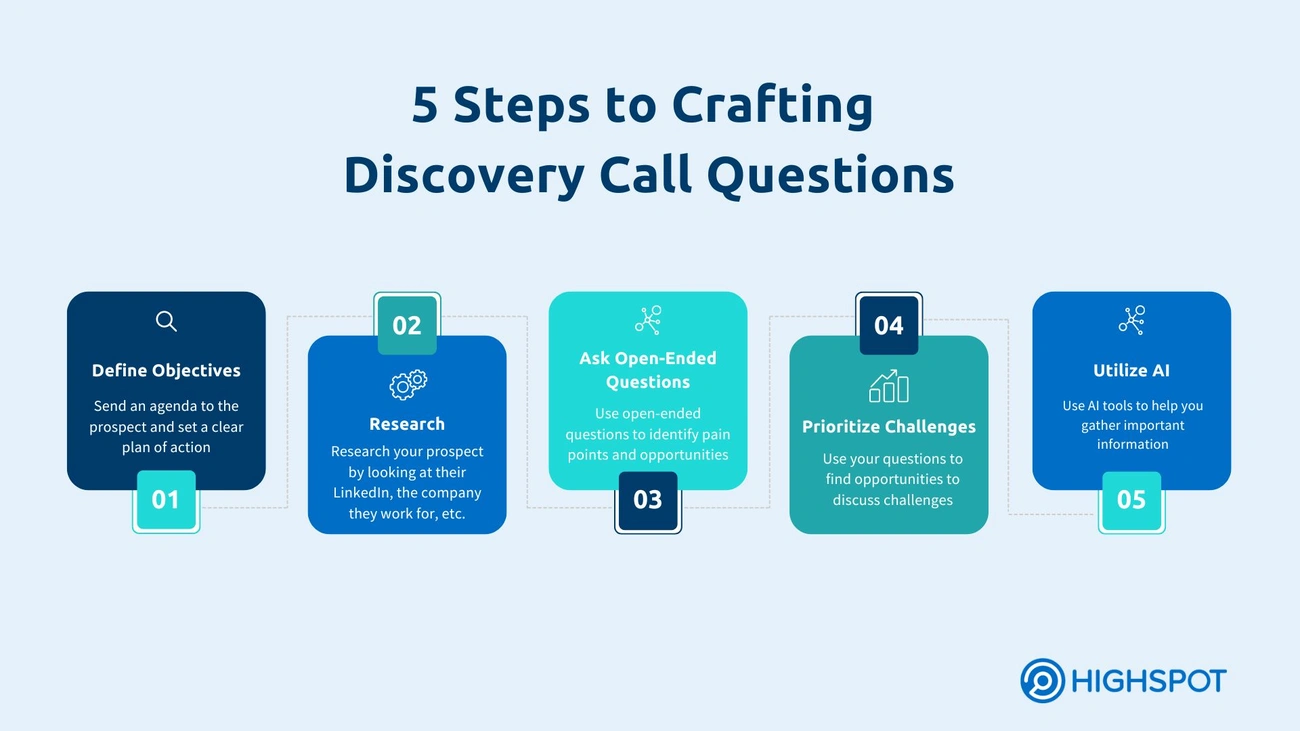
Representatives who monopolize discovery conversations eliminate their most valuable opportunity: listening to prospects describe their actual needs. Call analysis reveals a troubling imbalance where sales professionals speak 65% of the time, leaving customers with only 35% of the conversation to express their challenges and requirements.
Description of Over-Talking and Poor Questioning Techniques
This mistake manifests when representatives control conversation flow rather than facilitating prospect disclosure. The behavior typically appears in two distinct forms:
Excessive talking occurs when representatives prioritize product explanations over need discovery. These professionals spend valuable meeting time describing capabilities while prospects wait for opportunities to share their specific challenges.
Shallow questioning compounds the problem. Representatives ask brief, closed-ended questions that generate yes/no responses, then immediately resume their presentations. When prospects mention pain points, these representatives fail to explore deeper with follow-up questions, missing critical context that would inform solution positioning.
Rather than employing structured questioning frameworks such as SPICE or MEDIC, many representatives ask random questions without strategic purpose. This scattered approach yields incomplete information while prospects sense the lack of professional methodology.
Impact of Over-Talking and Poor Questioning Techniques
The consequences create cascading problems throughout the sales process.
Limited understanding emerges as the primary issue. Representatives who dominate conversations collect surface-level information while missing the root causes and specific challenges that drive purchasing decisions. This incomplete discovery leads directly to misaligned solution presentations and irrelevant demonstrations.
Prospect engagement deteriorates rapidly when customers feel unheard. Those who cannot adequately express their situations often mentally disengage, resulting in shortened calls and resistance to scheduling additional meetings.
Trust erosion proves most damaging to long-term success. Prospects reasonably conclude that representatives who fail to listen during sales conversations will demonstrate similar behavior after contract signing.
How AI Coaching Helps Avoid Over-Talking and Poor Questioning Techniques
AI coaching addresses these challenges through multiple intervention points.
Real-time talk ratio monitoring tracks speaking percentages throughout calls, providing gentle alerts when representatives exceed optimal thresholds. This immediate feedback helps professionals recognize their tendency to dominate conversations before prospects become frustrated.
Question quality analysis identifies closed-ended questions and suggests open-ended alternatives that encourage detailed prospect responses. AI systems can distinguish between questions that generate meaningful information and those that merely confirm basic facts.
Structured questioning frameworks embedded within coaching platforms guide representatives through systematic discovery paths. These frameworks ensure comprehensive exploration of relevant topics while maintaining natural conversation flow.
Post-call analysis highlights missed opportunities for deeper exploration, showing representatives specific moments where follow-up questions could have uncovered additional insights. This continuous feedback creates progressive improvement in questioning technique across multiple interactions.
3. Rushing to Product Demo Before Discovery
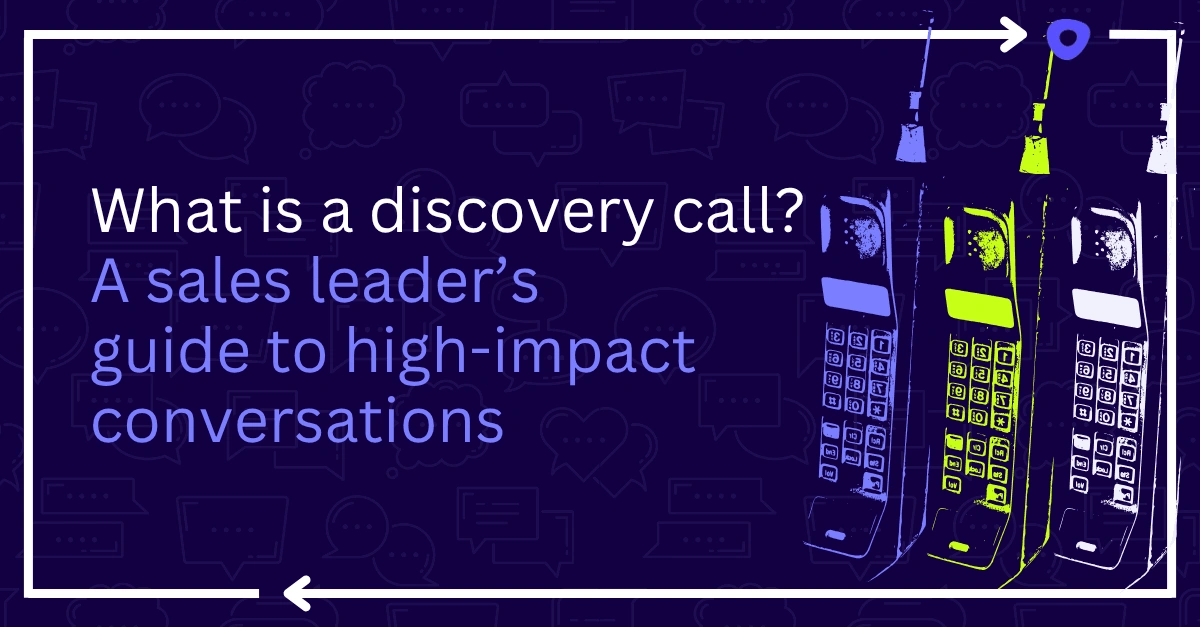
Product demonstrations seduce representatives into premature presentations. This eagerness to showcase capabilities cuts short the critical information-gathering phase that should precede any solution discussion.
Description of Rushing to Product Demo Before Discovery
Representatives who rush into product demonstrations make a fundamental error: they present solutions before understanding problems. This mistake occurs when sales professionals share their screen after minimal qualifying questions, prioritizing feature showcase over needs exploration.
The pattern manifests in predictable ways:
- Demonstrations begin before customer pain points receive thorough exploration
- Basic qualifying questions substitute for comprehensive discovery
- Representatives yield to internal pressure to "get to the good stuff"
One representative spent fifteen minutes demonstrating advanced analytics capabilities before discovering the prospect used entirely different systems. This scenario illustrates the core issue: enthusiasm about product features often overpowers patience for proper discovery.
Impact of Rushing to Product Demo Before Discovery
Customer confidence erodes when demonstrations highlight irrelevant capabilities while ignoring actual requirements. Meeting time gets consumed by features that hold no value for the specific prospect's situation.
Conversion rates decline sharply when demonstrations fail to connect with genuine customer challenges. Without proper discovery, value propositions remain generic rather than targeted to specific pain points and business objectives.
The perception damage extends beyond individual calls. Prospects conclude that companies rushing to demonstrate products care more about selling features than solving problems—a reputation that follows representatives throughout entire sales cycles.
How AI Coaching Helps Avoid Rushing to Product Demo Before Discovery
AI coaching platforms enforce systematic discovery completion before demonstration phases begin. These systems create structured workflows that prevent premature transitions regardless of representative enthusiasm or external pressure.
Qualification checkpoints embedded within AI coaching tools require completion of specific discovery elements before unlocking demonstration capabilities. This approach maintains process discipline while allowing natural conversation flow.
Real-time guidance alerts representatives when attempts to transition prematurely occur during calls. These subtle prompts redirect conversations back to outstanding discovery requirements without disrupting prospect engagement.
Post-call analysis identifies patterns where representatives consistently attempt early transitions, creating targeted coaching opportunities that address individual tendencies toward premature demonstration.
4. Inadequate Note-Taking and Follow-Up
Critical customer insights vanish between discovery calls and follow-up conversations. Sales representatives who depend on memory rather than systematic documentation create gaps that damage deal progression and frustrate prospects who must repeat their requirements.
Description of Inadequate Note-Taking and Follow-Up
This mistake occurs when representatives treat discovery calls as informal conversations rather than structured information-gathering sessions. Instead of capturing detailed notes during discussions, they rely on fragmented mental notes or hastily scribbled reminders that fail to preserve the nuance of customer requirements.
The problem manifests in several ways:
- Technical specifications mentioned during calls disappear from follow-up communications
- Budget parameters and timeline constraints get overlooked in proposal preparation
- Key stakeholder concerns raised during discovery never appear in subsequent presentations
Customer requirements that seem clear during live conversations often become fuzzy memories within hours. Representatives who trust their recall abilities discover that important details—implementation deadlines, integration requirements, approval processes—fade quickly without proper documentation.
One revealing example involved a representative who failed to record a prospect's mention of upcoming regulatory changes affecting their industry. The resulting proposal ignored this critical factor, positioning solutions that would become obsolete within months.
Impact of Inadequate Note-Taking and Follow-Up
Documentation failures create cascading problems throughout the sales process. Prospects lose confidence when representatives ask questions that were already answered in previous conversations. This repetition signals poor organization and attention to detail—qualities that prospects naturally extend to predict post-sale service levels.
Sales cycles extend unnecessarily as additional calls become required to recapture lost information. What should have been straightforward proposal preparation becomes a research project as representatives scramble to reconstruct forgotten details.
Pipeline accuracy suffers when qualification criteria captured during discovery calls never make it into CRM systems. Sales leaders find themselves working with incomplete data, making forecasting exercises unreliable and resource planning problematic.
How AI Coaching Helps Avoid Inadequate Note-Taking and Follow-Up
AI coaching platforms address documentation challenges through automated capture and analysis of discovery conversations. These systems transcribe entire calls while identifying key discussion points, requirements, and next steps without requiring representative attention during the conversation.
Intelligent extraction capabilities pull specific information types from transcripts—budget ranges, implementation timelines, technical requirements, stakeholder preferences—and organize them into structured formats that support proposal development and follow-up planning.
Automated follow-up templates reference specific points discussed during calls, ensuring that communications acknowledge customer concerns and requirements mentioned during discovery. These personalized messages demonstrate attention to detail while maintaining consistency across the sales team.
The efficiency gains prove substantial. Representatives who previously spent significant time recreating conversation details from incomplete notes can focus on relationship development and strategic planning instead of administrative reconstruction.
5. Lack of Personalization in Communication
Prospects can detect generic outreach within seconds of receiving it. Sales conversations reveal a persistent disconnect between the detailed information gathered during discovery calls and the templated communications that follow, creating missed opportunities for meaningful connection.
Description of Lack of Personalization in Communication
This mistake occurs when representatives default to standardized follow-up approaches despite having gathered specific customer insights during discovery conversations. The problem manifests across multiple touchpoints throughout the sales process.
Follow-up emails frequently contain boilerplate language that makes no reference to the unique challenges or opportunities discussed during calls. Representatives send identical messages to different prospects, ignoring the specific pain points, budget constraints, or implementation timelines that emerged during conversations.
Demonstrations suffer from similar standardization issues. Representatives showcase features in identical sequences regardless of prospect priorities, failing to customize presentations based on the specific needs uncovered during discovery.
The issue extends to meeting schedules and next steps. Communications often lack references to previously agreed timelines or specific action items, creating the impression that each prospect receives identical treatment regardless of their individual circumstances.
Impact of Lack of Personalization in Communication
The business consequences extend beyond simple inefficiency. Prospect engagement declines rapidly when communications fail to acknowledge their specific situation, creating the perception that they represent another entry in a database rather than a potential strategic partnership.
Trust deteriorates when prospects recognize that their time investment in sharing detailed information during discovery calls produced generic responses. This erosion often proves difficult to repair later in the sales cycle.
Competitive differentiation disappears when your communications mirror those of every other vendor. Without personalization, prospects struggle to distinguish between different solutions and providers, often defaulting to price-based decisions that eliminate relationship advantages.
Sales cycles extend unnecessarily as prospects require additional conversations to confirm that representatives understand their specific requirements—information that should have been captured and referenced from initial discovery efforts.
How AI Coaching Helps Avoid Lack of Personalization in Communication
AI coaching platforms address personalization challenges through sophisticated analysis of discovery conversations. These systems automatically identify specific customer pain points, technical requirements, and business objectives mentioned during calls, creating detailed profiles that inform all subsequent communications.
Template customization becomes systematic rather than manual. AI tools highlight which elements of standard communications require prospect-specific modifications while maintaining brand consistency across all outreach efforts.
The technology recognizes discussion themes that merit emphasis in follow-up materials, ensuring that critical points raised by prospects receive appropriate attention in subsequent communications. This automated approach prevents important details from being overlooked in busy sales environments.
Post-call communication suggestions help representatives identify personalization opportunities they might otherwise miss, creating more relevant touchpoints that demonstrate genuine understanding of each prospect's unique situation.
6. Poor Use of Technology and Platform Features
Modern meeting platforms offer sophisticated capabilities that remain largely untapped during discovery calls. Sales representatives consistently default to basic screen sharing while powerful interactive features sit unused—a pattern that undermines both engagement and competitive positioning.
Description of Poor Use of Technology and Platform Features
This mistake surfaces when representatives underutilize the interactive capabilities available in their meeting platforms. Rather than exploring features like co-browsing, annotation tools, and guided playbooks, they retreat to familiar screen sharing methods or external applications that fragment the experience.
The pattern emerges consistently:
- Representatives rely exclusively on traditional screen sharing approaches
- Interactive features go unexplored despite their availability
- Teams struggle with the technical aspects of advanced capabilities
Sales organizations invest significant resources in sophisticated platforms yet capture only a fraction of their potential value. Representatives often express comfort with basic functionality while avoiding features that could create more collaborative, engaging discovery experiences.
Impact of Poor Use of Technology and Platform Features
Customer engagement suffers when prospects experience passive presentations rather than interactive discussions. This one-dimensional approach reduces the collaborative nature of discovery conversations, limiting the depth of information exchange.
Technical complications increase as representatives jump between multiple tools instead of using integrated solutions. These fragmented workflows create awkward transitions, connection issues, and time wastage that disrupts conversation flow.
The competitive implications prove most significant. While competitors deliver standard presentations, teams that master interactive capabilities can showcase collaborative experiences that differentiate their approach and demonstrate technological sophistication.
How AI Coaching Helps Avoid Poor Use of Technology and Platform Features
AI coaching platforms address technology underutilization through targeted guidance and systematic feedback. These systems identify which features representatives avoid and provide personalized training to build confidence with advanced capabilities.
Real-time prompts during calls suggest appropriate moments to activate specific features. When discussing complex concepts, AI can recommend annotation tools. During solution exploration, the system might suggest transitioning to co-browsing functionality.
Post-call analysis reveals missed opportunities where interactive features could have enhanced engagement or clarity. This continuous feedback creates improvement cycles that progressively expand representatives' comfort with platform capabilities.
These AI-driven approaches help teams transition from basic presentations to collaborative discovery experiences that engage prospects and demonstrate technical competency.
7. Inconsistent Qualification and Discovery Frameworks
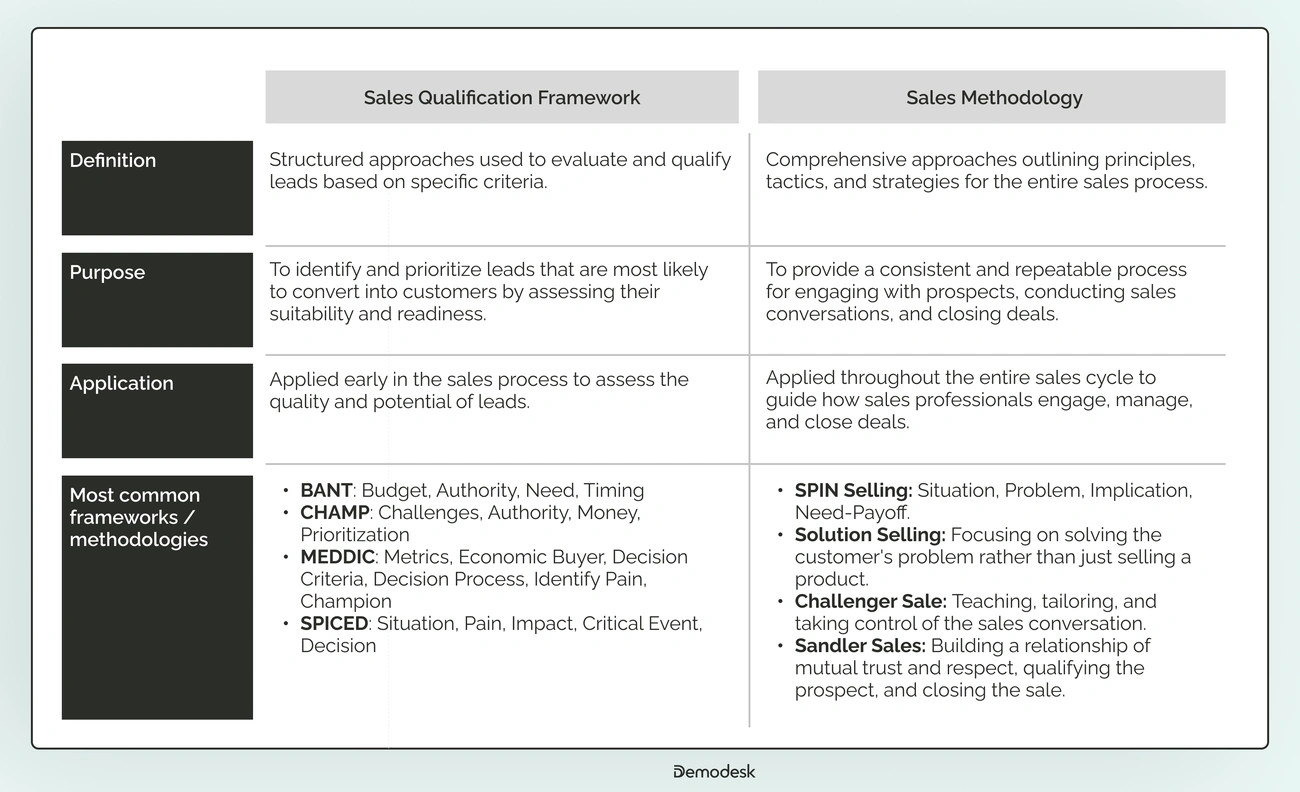
Standardization gaps create wildly variable results across sales teams, even within the same organization. Discovery call effectiveness depends heavily on consistent qualification approaches, yet many teams operate without unified frameworks to guide their prospect conversations.
Description of Inconsistent Qualification and Discovery Frameworks
This mistake emerges when sales teams lack systematic approaches to qualifying prospects and conducting discovery conversations. Some representatives follow structured frameworks like MEDIC or SPICE to guide their questioning sequences, while others rely entirely on improvised approaches that vary from call to call.
The absence of standardized discovery playbooks means each representative essentially develops their own qualification methodology. This leads to several problematic patterns:
- Representatives gather different types of information from similar prospects
- Qualification criteria change depending on which team member conducts the call
- Teams lack shared vocabulary for discussing opportunities and pipeline status
Organizations that fail to establish consistent discovery frameworks create dangerously subjective qualification processes. The result resembles different sales teams operating within the same company rather than a coordinated revenue organization.
Impact of Inconsistent Qualification and Discovery Frameworks
Pipeline visibility becomes compromised when different representatives collect different data points from prospects. Sales leaders struggle to compare opportunities accurately or make informed decisions about resource allocation.
Forecasting reliability suffers as qualification data varies significantly across the pipeline. Without consistent information gathering, predicting outcomes becomes nearly impossible for sales management.
Coaching efforts face substantial obstacles when standardized approaches don't exist. Managers lack objective criteria for evaluating representative performance or identifying specific areas where discovery techniques need improvement.
How AI Coaching Helps Avoid Inconsistent Qualification and Discovery Frameworks
AI coaching addresses these challenges through systematic standardization of discovery processes. Uniform discovery frameworks embedded in AI systems ensure consistent questioning approaches across all team members.
Objective evaluation metrics become possible through AI-powered scorecards that assess every discovery call against established criteria. Representatives and managers both gain clear understanding of what constitutes effective discovery execution.
Real-time guidance during calls helps representatives adhere to established frameworks while maintaining natural conversation flow. Post-call analysis tracks framework compliance patterns, identifying opportunities for targeted coaching interventions.
These capabilities enable organizations to transform inconsistent discovery approaches into standardized, measurable processes that produce reliable qualification data across the entire sales team.
8. Failing to Address Technical and Logistical Issues
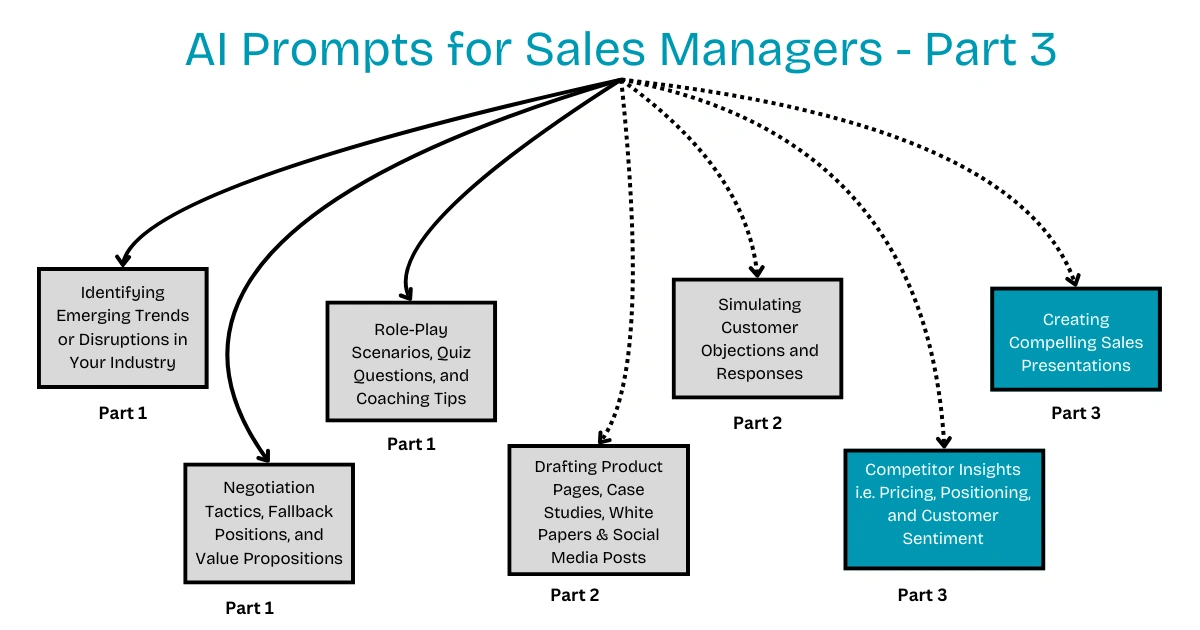
Technical difficulties sabotage discovery calls when representatives fail to anticipate preventable problems. Analysis of sales conversations shows that many reps treat technical barriers as unavoidable disruptions rather than manageable challenges.
Description of Failing to Address Technical and Logistical Issues
Technical problems derail discovery conversations when representatives ignore preparation requirements until issues become immediate obstacles. These disruptions typically manifest through several predictable patterns:
Poor internet connectivity creates audio and video interruptions that fragment conversation flow. Prospects often lack necessary access permissions or struggle with unfamiliar meeting platforms. Integration failures between presentation tools and meeting software create awkward technical delays.
The most damaging scenario occurs when customers cannot join calls successfully. One particularly revealing example involved a prospect who spent eight minutes of a thirty-minute discovery call attempting to connect audio - immediately establishing frustration as the conversation's foundation.
Most representatives react to these technical barriers as unavoidable inconveniences rather than addressing them proactively during call preparation.
Impact of Failing to Address Technical and Logistical Issues
Technical disruptions create cascading problems throughout the discovery process. Meeting attendance rates decline when frustrated prospects abandon complicated connection attempts. Customer experience deteriorates as valuable discussion time gets consumed by troubleshooting basic technical problems.
These seemingly minor technical issues often signal broader operational concerns to prospects. When discovery calls begin with technical difficulties, customers naturally question whether working with your organization will involve similar frustrations after purchase.
The business impact extends beyond individual calls as technical problems create negative first impressions that influence entire sales cycles.
How AI Coaching Helps Avoid Failing to Address Technical and Logistical Issues
AI coaching platforms address technical preparation through systematic prevention rather than reactive solutions. Automated pre-call verification systems confirm technical requirements before meetings begin, checking compatibility requirements, access permissions, and connectivity specifications.
Smart scheduling tools automatically deliver preparation instructions and troubleshooting resources to prospects at optimal intervals before calls. These systems ensure consistent technical preparation without requiring manual intervention from representatives.
During live calls, AI coaching provides real-time technical guidance when issues arise, helping representatives resolve problems efficiently while maintaining professional composure. This systematic approach transforms technical preparation from reactive crisis management into proactive relationship building.
9. Inadequate Data Integration and CRM Hygiene
Discovery conversations generate valuable intelligence. However, fragmented data systems sabotage this intelligence when information fails to flow seamlessly between platforms.
Description of Inadequate Data Integration and CRM Hygiene
Sales teams often operate with disconnected technology stacks where meeting platforms and CRM systems function as separate entities rather than integrated workflow components. This isolation creates several critical problems:
Meeting notes remain trapped within individual platforms while customer records in Salesforce or similar CRM systems lack essential context from discovery conversations. Representatives manually transfer data between systems, introducing inconsistencies and human error that compromise data reliability.
The fragmentation becomes particularly evident when examining team practices. Some representatives document extensively within meeting platforms while others maintain information exclusively in CRM systems. This creates dangerous information silos where critical customer insights become inaccessible to team members.
Duplicate contacts proliferate across platforms as synchronization failures create multiple versions of the same prospect record. Customer information gets scattered across systems, making comprehensive account management nearly impossible.
Impact of Inadequate Data Integration and CRM Hygiene
Data fragmentation creates cascading business problems that extend far beyond administrative inconvenience.
Manual data transfer consumes substantial time that representatives could spend building relationships or closing deals. More critically, these manual processes generate reporting errors that distort pipeline visibility and compromise forecasting accuracy.
Future customer interactions suffer when representatives lose access to previous conversation context. Without comprehensive customer history, follow-up calls often repeat previously covered topics, creating frustration and extending sales cycles.
The credibility damage can be severe. Prospects who must repeatedly explain their situation because information wasn't properly captured often question the organization's attention to detail and operational competence.
How AI Coaching Helps Avoid Inadequate Data Integration and CRM Hygiene
Modern AI coaching platforms eliminate data fragmentation through automated synchronization capabilities that connect meeting platforms with CRM systems.
These intelligent systems capture discovery call data automatically and populate appropriate CRM records without manual intervention. Advanced algorithms flag potential duplicate contacts and inconsistent information before problems compound.
Regular system audits powered by AI monitor integration settings and user permissions, ensuring data flows correctly between platforms. The technology identifies gaps in information transfer and alerts administrators to configuration issues.
The result eliminates manual data transfer requirements while substantially reducing errors that compromise data integrity and customer relationship management.
10. Lack of Coaching, Feedback, and Continuous Improvement
Discovery call performance stagnates without systematic feedback mechanisms. Sales organizations frequently invest heavily in initial training yet fail to establish ongoing evaluation processes that drive sustained improvement in representative capabilities.
Description of Lack of Coaching, Feedback, and Continuous Improvement
This mistake occurs when sales representatives receive minimal or inconsistent feedback on their discovery call performance. Without structured evaluation processes, representatives operate in isolation, repeating ineffective approaches across multiple prospect interactions.
The problem typically manifests when:
- Scorecards remain unused or provide only generic ratings without actionable insights
- AI-generated call analysis sits unreviewed in management dashboards
- Representatives continue making identical mistakes across discovery conversations without awareness
- Successful techniques go unidentified and unshared across team members
Sales managers often lack time to review individual calls systematically, while representatives remain unaware of specific improvement opportunities that could enhance their qualification effectiveness.
Impact of Lack of Coaching, Feedback, and Continuous Improvement
The organizational consequences extend far beyond individual performance limitations:
Performance stagnation becomes inevitable as representatives lack visibility into their specific weaknesses and improvement areas. Without objective feedback, even motivated team members struggle to identify which aspects of their discovery approach require attention.
Best practice adoption remains limited when successful techniques fail to get identified and disseminated across the organization. High-performing representatives develop effective approaches that never benefit their colleagues, creating inconsistent results across the team.
Development opportunities disappear entirely when feedback loops remain broken. Representatives who could improve with targeted guidance instead plateau at suboptimal performance levels, limiting both individual and organizational growth potential.
How AI Coaching Helps Avoid Lack of Coaching, Feedback, and Continuous Improvement
AI coaching platforms address feedback challenges through systematic performance evaluation capabilities:
Automated performance reviews analyze call recordings to generate objective assessments of discovery effectiveness. These systems identify specific improvement areas based on measurable criteria rather than subjective manager observations.
AI-powered platforms highlight precise development opportunities by comparing individual performance against established best practices. Representatives receive detailed feedback on questioning techniques, talk ratios, and framework adherence immediately following each discovery conversation.
Peer learning systems emerge when AI coaching identifies successful discovery approaches and makes them available as training resources. High-performing calls become learning tools that benefit the entire organization rather than remaining isolated successes.
Continuous improvement cycles develop naturally as AI coaching generates personalized recommendations after each interaction. Every discovery call becomes a measured learning opportunity that contributes to progressive skill development rather than a standalone event.
Summary of Discovery Call Mistakes and Solutions
The ten mistakes outlined above create a pattern of missed opportunities across sales organizations. Each error carries distinct consequences that compound throughout the sales process, yet AI coaching provides specific solutions to address these persistent challenges.
The following comparison highlights how these mistakes manifest in real sales conversations and demonstrates the systematic approaches available through modern coaching platforms:
This systematic approach to addressing discovery call challenges demonstrates how technology can support rather than replace human sales expertise. Teams that implement these solutions consistently see measurable improvements in conversation quality, prospect engagement, and ultimately, closing rates.
Mastering Discovery Conversations Through Systematic Improvement
Discovery calls shape the entire sales journey, yet representatives across industries repeat identical mistakes that damage otherwise promising opportunities. The ten errors examined here represent systematic failures rather than isolated incidents—patterns that persist until organizations address their root causes through structured intervention.
Successful discovery execution demands multiple competencies working in harmony. Representatives must prepare thoroughly, listen actively, question strategically, document comprehensively, personalize communications, utilize technology effectively, follow consistent frameworks, anticipate technical challenges, maintain data integrity, and continuously improve their approach.
AI coaching platforms address each competency through targeted solutions: automated preparation systems, real-time conversation guidance, structured questioning protocols, comprehensive transcription capabilities, personalization engines, technology utilization training, standardized discovery frameworks, proactive technical support, seamless data integration, and ongoing performance analytics.
The improvement process occurs incrementally through consistent reinforcement rather than sporadic interventions. Representatives who receive continuous AI-powered feedback develop stronger discovery habits compared to those dependent on occasional manager reviews. This systematic approach removes subjective evaluation while delivering immediate, actionable insights after each conversation.
Sales organizations of every size encounter at least several of these discovery challenges. AI coaching offers scalable solutions that adapt to team requirements whether managing five representatives or five hundred. Implementation systematically eliminates recurring mistakes while establishing more effective, predictable sales processes.
Discovery call excellence emerges from combining human relationship expertise with AI-powered analytical capabilities. Organizations that master this integration will discover improved deal closure rates alongside enhanced customer experiences throughout their entire sales engagement.






![AI Sales Coaching vs Human Managers: The Truth Behind the Numbers [2025 Data]](https://cdn.prod.website-files.com/60e7f71b22c6d0b9cf329ceb/60ef56794ae59cf299917b6d_Pastel%20Blue%20Photo%20Grid%20Plain%20Collage%20Instagram%20Post%20(8)%201.avif)





